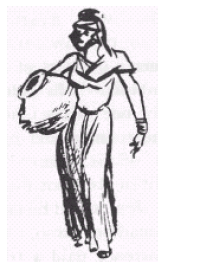Amjad Ali Shah
This is a collection of articles archived for the excellence of their content. Readers will be able to edit existing articles and post new articles directly |
This article was written in 1939 and has been extracted from
HISTORIC LUCKNOW
By SIDNEY HAY
ILLUSTRATED BY
ENVER AHMED
With an Introduction by
THE RIGHT HON. LORD HAILEY,
G.C.S.I., G.C.I.E.
Sometime Governor of the United Provinces
Asian Educational Services, 1939.
Amjad Ali Shah
1842—1847
King Amjad Ali Shah Was the second son of his predecessor Muhammad Ali Shah. His elder brother Ashar Ali died young so that his son Mumtaz-ud-Doulah, formerly in direct succession, was thenceforward of no account.
It was already May when the old King died, but undeterred by the heat of the summer, Amjad Ali Shah gave full rein to excess and vice. All reforms attempted by his father were nullified. The country went from bad to worse. Almost the only good things he seems to have done were to erect the Iron Bridge over the Gumti, which had been lying by the wayside for more than thirty years, and to construct the road to Cawnpore which still follows the same route. His minister Amin-ud-Doulah built the great Aminabad bazar and serai on the Cawnpore Road now engulfed in the heart of Lucknow city.
The King also built his own mausoleum and the street of Hazrat Ganj, in which it now lies forgotten and deserted, given over to rats, cobwebs and decay.
Von Orlich visited Lucknow soon after Amjad Ali Shah’s accession and was granted audience by the King in the Farhat Bakhsh. General Nott was the new Resident and was assisted by Captain Shakespeare who had been one of the actors in the tumultuous scene at Muhammad Ali Shah’s accession.
The Resident presented Von Orlich to the King, who impressed the visitor as being tall, rather fat, benevolent-looking, but extremely ugly, having an enormous nose. On this occasion he wore a robe of green silk lavishly embroidered with gold and silver threads, which opened to disclose red silk pantaloons and gold embroidered shoes.
Upon his head he wore a high jewelled cap. Round his neck and upon his fingers flashed priceless jewels. Amjad Ali Shah is always depicted as wearing the most gorgeous robes and jewels. Not one costly chain but four hung round his neck, a magnificent osprey surmounted his crown, which blazed with jewels. In the palace a special table was reserved for a large assortment of head-dresses for it pleased the King to change these at frequent intervals.
At the end of an interview the chamberlain produced the golden embroidered garlands for which Lucknow is still justly famed. The royal ones were made of silver thread and incorporated the kingly arms of two swords, a tiara, a crown, and the famous fish emblem embossed in gold upon silver shields. These garlands the King with his own hand placed around the necks of his visitors before escorting them to the entrance of the palace. There he was wont to embrace them, shake them warmly by the hand and retire.
King Amjad Ali Shah cared nothing for manly sports. Instead, he passed a great deal of his time in his harem where dwelt a very remarkable woman, his chief wife, daughter of Hasinud- Din, Khan of Kalpi. Hers were not the only attractions which drew the King so often to the women’s quarters of the palace. He had nearly two hundred concubines. His eldest son thus had the worst possible upbringing for one of his inherited tendencies.
This King cared nothing for affairs of state and took no interest in the government of his country in spite of repeated representations from the British Resident that if he did not mend his ways of his own accord, steps would be taken by the Governor-General to see that he was made to do so.
In 1845 Sir Henry Lawrence paid a tribute to these kings. He said: “The Oudh rulers have been no worse than monarchs so situated usually are; indeed, they have been better than might have been expected. Weak, vicious, and dissolute they were, but they have seldom been cruel, and have never been false. In the storms of the last half century, Oudh is the one single native state that has invariably been true to the British Government: that has neither intrigued against us nor seemed to desire our injury.”
The verdict of so stern a moralist should be remembered by those who are inclined to think of all the Kings of Oudh alike as monsters of treachery and misrule.

